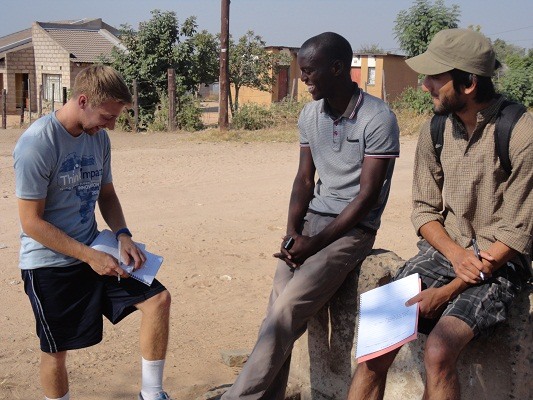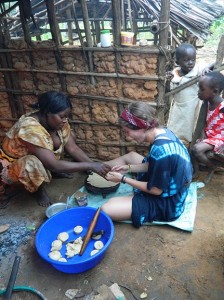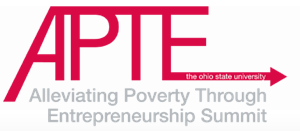Global Brigades is excited to partner with ThinkImpact to bring you the summer Innovation Institute, an experiential social entrepreneurship education program for college students and young professionals in rural Africa. Learn about a new culture while exploring entrepreneurship and innovation in emerging economies. The 2012 Institute runs from June 20 to August 12. Every great idea has a story. Start yours this summer with ThinkImpact.
Join ThinkImpact this summer in Ghana, Kenya, Rwanda or South Africa. Apply now.
Scott Fairbanks, former USC Chapter President for Business Brigades, and a South Africa Scholar with ThinkImpact, writes about his experience with the Innovation Institute.
“What do you do? Nothing.
Last week we spent a lot of time doing what ThinkImpact calls “Capacity Inventories”- essentially walking around to meet people in the community and discover what kind of skills they have. The title of this post shows an almost never-failing parallel between all of our conversations with different community members.
When asked what they do during they day or if they have a job, the most common response was “nothing.” Now there is definitely an extremely high rate of unemployment in the community, but after some more directed questioning we found out a lot more. One young man, Bongeka, gave us that response initially. However, we later found out that he actually manages a team of construction workers and has worked with them to complete over fifteen entire homes- when each room can take a month to construct! Did I mention they make all of their own bricks?
Another young adult, Tiltshwalo, also said that she does nothing. That is, of course, besides running a small-scale hair salon where she does 3-6 people’s hair per day for a significant fee.
So what is it about this miscommunication- is it the language barrier? Do they not understand what we’re asking? We don’t think so. Part of it is cultural, and part of it is practical.
Think about America and the way we’re raised: to gain as many skills as we can, perfect them, and eventually “sell” ourselves to potential employers. In short, we’re all really great at talking about ourselves. If someone asked you what skills you have or what you do, I’m sure most people could talk for about an hour if given the chance. Here that’s not the case. Talents like building houses or doing hair are just skills you learn growing up, and using them to put food on the table isn’t anything special.
To them, that keeps it from being a job. It’s not a formal position, and it’s not necessarily consistent income- which are both true. So what does count as a job? Working on the nearby game reserves in everything from housekeeping to tracking. Managing the boreholes (wells) for the government water agency. Teaching at the school.
The trouble is, these jobs are few and far between. And beyond what I mentioned above, there really are people that do “nothing” each day. It’s easily the biggest obstacle between Huntington and further development, and it’s a problem that I’m going to try to tackle with my social business.”






